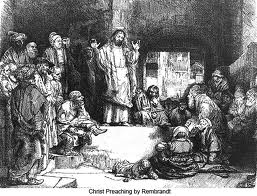One of the most important issues in choosing a seminary is the institution’s stance relative to various theological issues. You obviously don’t want to feel as though you are swimming against the doctrinal current of your school. However, the fact is, no matter how well defined your own positions are and how carefully you choose your seminary, you will at least at some point find yourself at variance with those around you. Sometimes those disagreements may be serious enough for you to consider transferring to another institution. Most times, though, it probably just means you get the opportunity to learn to interact in Christian way with those you disagree with.
So, what is the Christian way? How do we disagree with our brothers and sisters, our teachers, our seminary?
1. Never quarrel. The Lord’s bondservant must not be quarrelsome, Paul told Timothy. In the context, Paul was addressing situations in which a church leader would have to oppose a false teacher. If the apostle told his protégé he must not be quarrelsome in this situation, how much more should a seminary student avoid quarreling when those on “the other side” are his brothers and sisters in the Lord?
2. Work harder than everyone else in class. If you are going to disagree with your prof, you better not be sloppy. You are going to have to understand thoroughly both sides of the argument (and others besides). This means, among other things, reading outside of the course list and finding support for your position from reputable persons. If you are going to take a stand, know where you are standing.
3. Have a broken heart over our differences. As much as it is a reality until glory, we ought never to be content with theological differences between believers. We should long to be unified, and that by the truth.
4. Don’t be over-zealous to “convert” those around you. This point needs to come after the last one. Sometimes we feel as if it were up to us to change the minds of everyone with whom we disagree, and in our passion we can put others in an awkward position. Of course, if we have done our homework well and our conscience is clear, we should not shy away from presenting our views. Only let us do so with grace and respect.
5. Take differences as an opportunity to build theological friendships. There are two sides to this. The first side is that we ought to form friendships with those we differ with as a display of our unity in Christ. All of us should be able to admit that we are still in the development phase of our Christian life- and shall be until glory- and therefore none of us should consider those with whom we disagree with as our opponents. The other side of this is that we should seek out others with whom we do agree and lean on them for support. Seminary can be a lonely place, especially if we find ourselves out of step doctrinally with those around us- we need friends.

